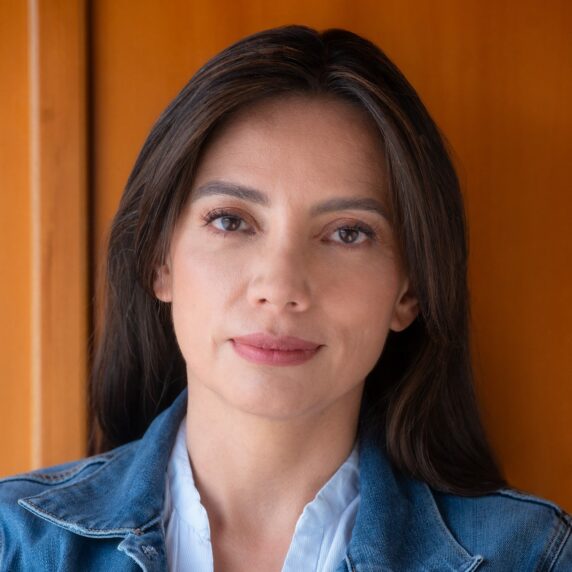2023
Diana Valencia Pineda
Astrophysicist investigates what would make super-Earths habitable

2023
Astrophysicist investigates what would make super-Earths habitable

If Earth was double its size, would it still be habitable? Would we still have mountains and oceans?
“It could be a whole different beast. Those are the kinds of questions I ask; if you change them in size, what else do you change?”
Diana Valencia
This curiosity drew Diana Valencia to the study of small planets outside of our solar system called super-Earths. These planets have a mass greater than Earth but less than Neptune, with rocky compositions similar to Earth. Her goal is to determine if planets with masses between one and 15 times the size of Earth are scaled-up versions of Earth or scaled-down versions of Neptune in terms of their composition, evolution and physical properties.
“I study mostly what they’re made of – which tells us a little bit about how they formed, and how they evolved – to try to understand not only our solar system, but also the question of what makes a planet habitable,” says the University of Toronto Scarborough researcher. “Why is Earth the only planet that we know it’s habitable?”
Her work has garnered Dr. Valencia the 2023 Guggenheim Fellowship. She is one of only two Canadians to win in 2023, and the only recipient in astronomy and astrophysics.
Her Guggenheim-funded research project includes analysis of data on multi-planet systems. In this work, she compares rocky planets orbiting the same star to look for differences in their composition. Another element of the project looks at the role of collisions in planet formation.
Dr. Valencia learned about her Guggenheim win while on a ski hill. “And then the day was just warmer, the sun came out – it was just really nice, beautiful,” she says. “It’s very rewarding to be acknowledged.”